ESCAPE
Long ago in Lekkersing – a Richtersveld journey
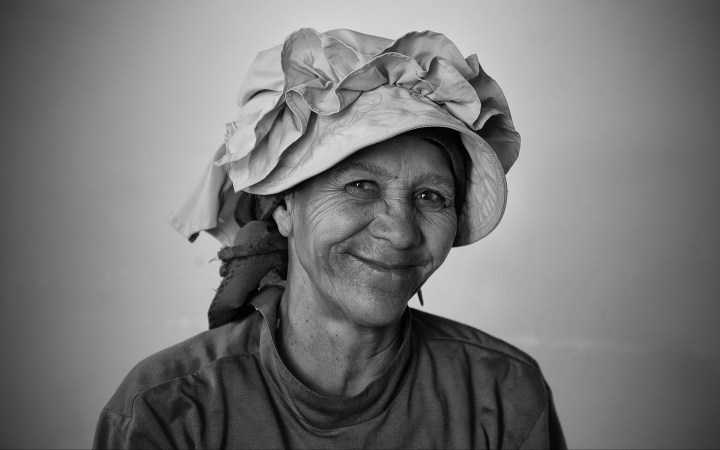
Unforgettable encounters in and around a far-flung desert village with a sweet name.
In a dry river bed somewhere in a faraway flowering desert called the Richtersveld Cultural and Botanical Landscape way back in 2000-and-bloody-hot, we meet a young herder called Rodney Joseph, his two dogs and a small troop of goats. He carries a homemade catapult, which he uses to chase jackals away from his livestock.
Rodney’s little group of beasts is about to join the family flock of 350 goats not far from here. This is just about the right amount of animals to sustain your average Richtersveld clan. His father works at one of the diamond mines along the Orange River.
“But this is all I want: just to walk in the veld with my goats,” the 17-year-old assures us. He is one of about 300 livestock farmers in the area, constantly roaming their herds through the dry country.
We drive south to Lekkersing, accompanied by a constant easterly wind that sets entire hillsides of marigold-yellow flowers to dancing.
Several hundred goats amble into view, flanked by a couple of dogs and led by a middle-aged herder called Hans Gouws, who hails from Springbok. His pockets are bulging with plucked plants.
“Dis Jantjie Berend, mevrou,” Hans answers our question. “Good for an upset stomach.”
We ask him about the flowers shivering all around us. We think they might be gansogies – also known as yellow marbles or grass buttons. Hans isn’t sure. “Perhaps dassie gousblom?” he ventures.
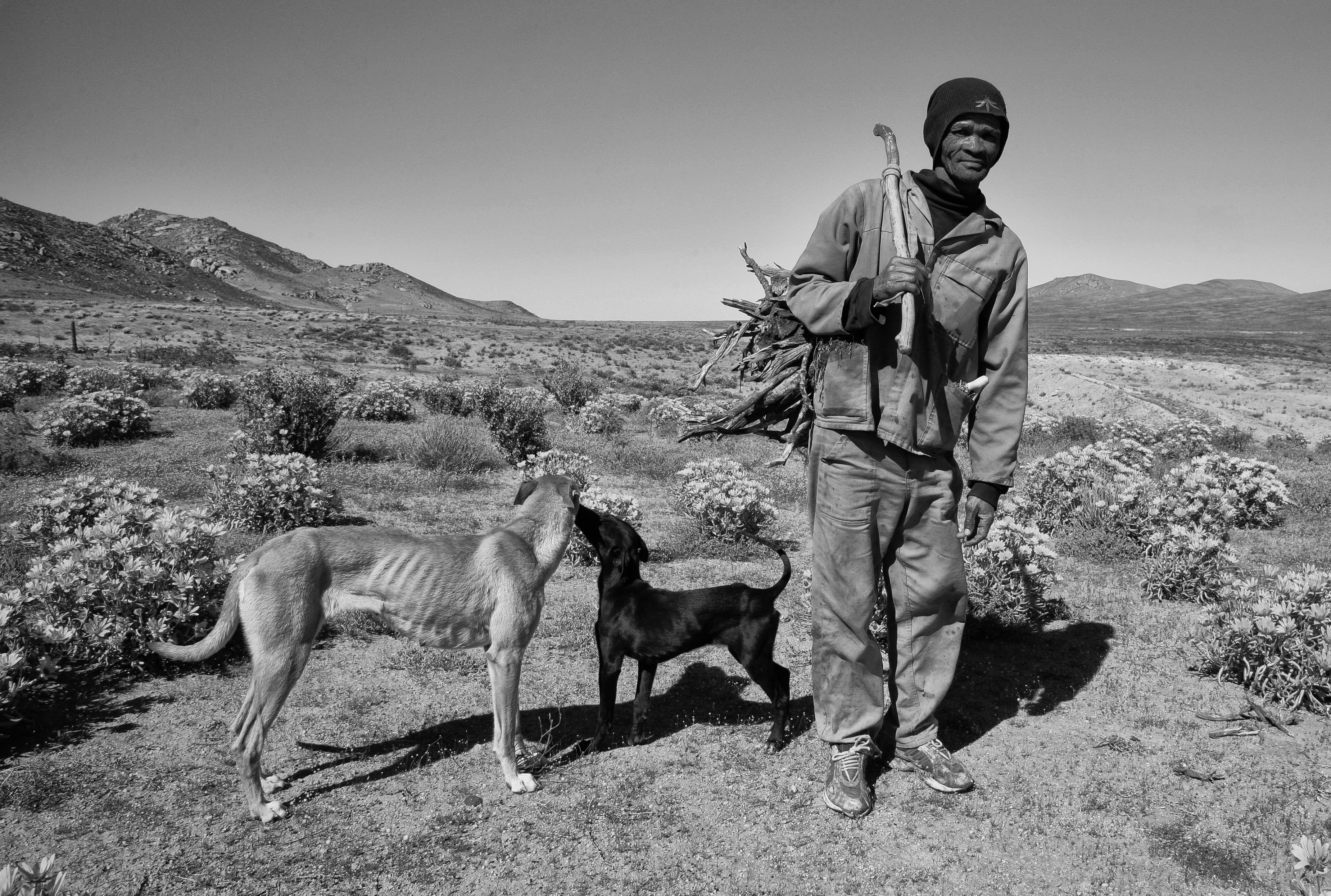
Hans Gouws, who will tell you all about the healing powers of Richtersveld plants. Image: Chris Marais
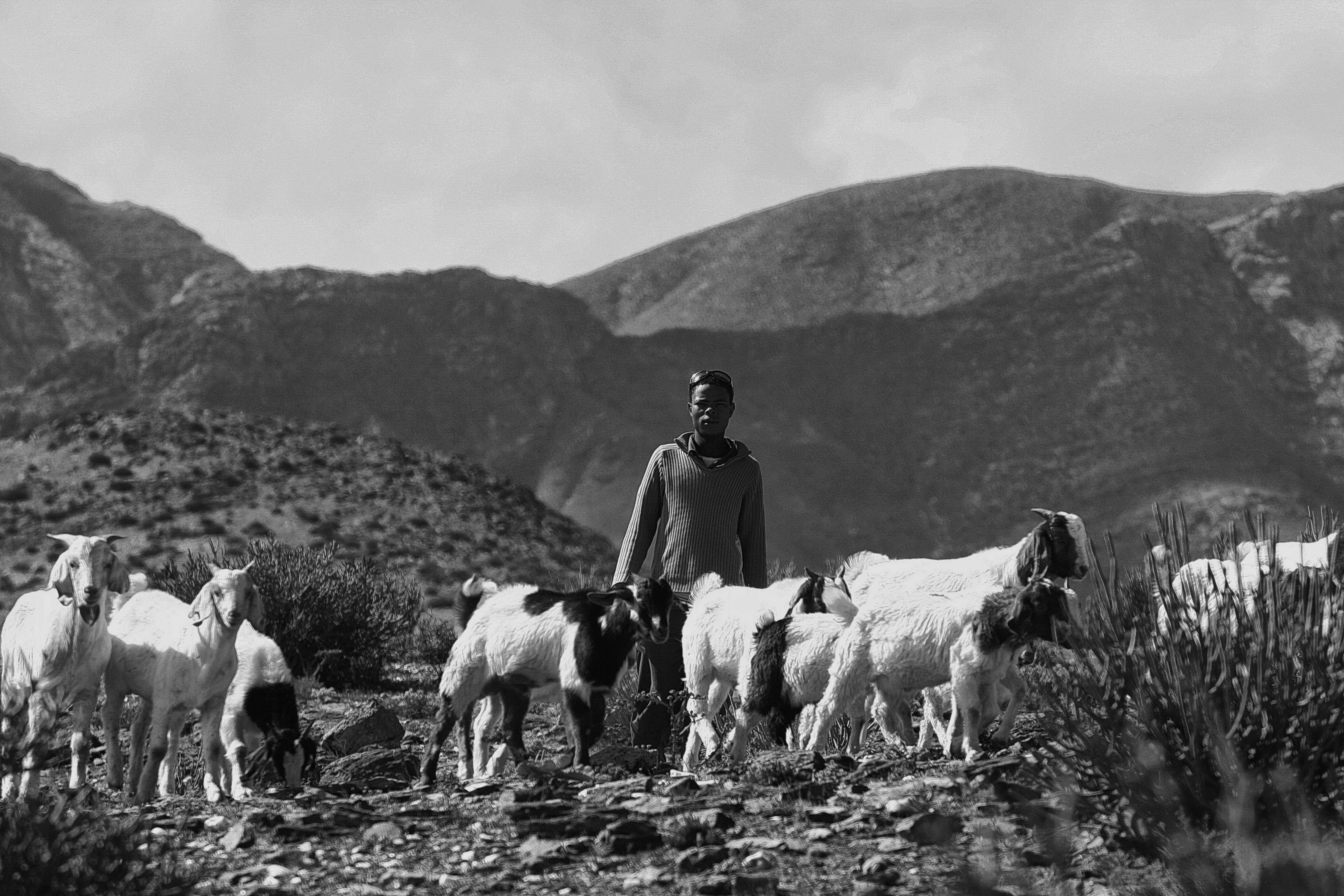
Rodney Joseph – carrying on a 2,000-year-old nomadic pastoral tradition. Image: Chris Marais
We greet each other warmly and continue our journey. These chance roadside encounters in the Richtersveld are golden. Rodney and Hans are part of a 2,000-year-old Nama semi-nomadic pastoral tradition, which led Unesco to declare this region a World Heritage Site in June 2007.
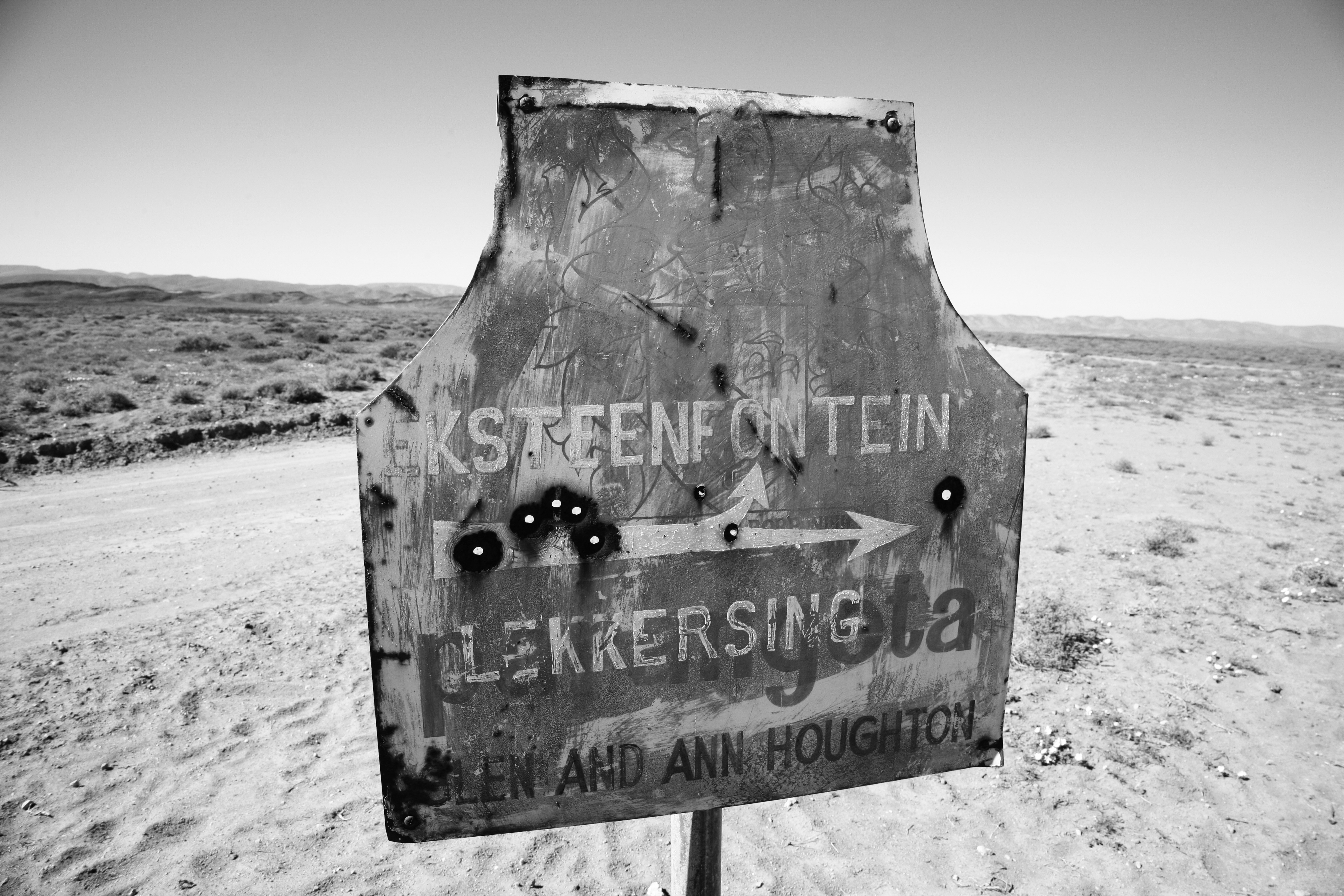
At the crossroads – Eksteenfontein or Lekkersing? Image: Chris Marais
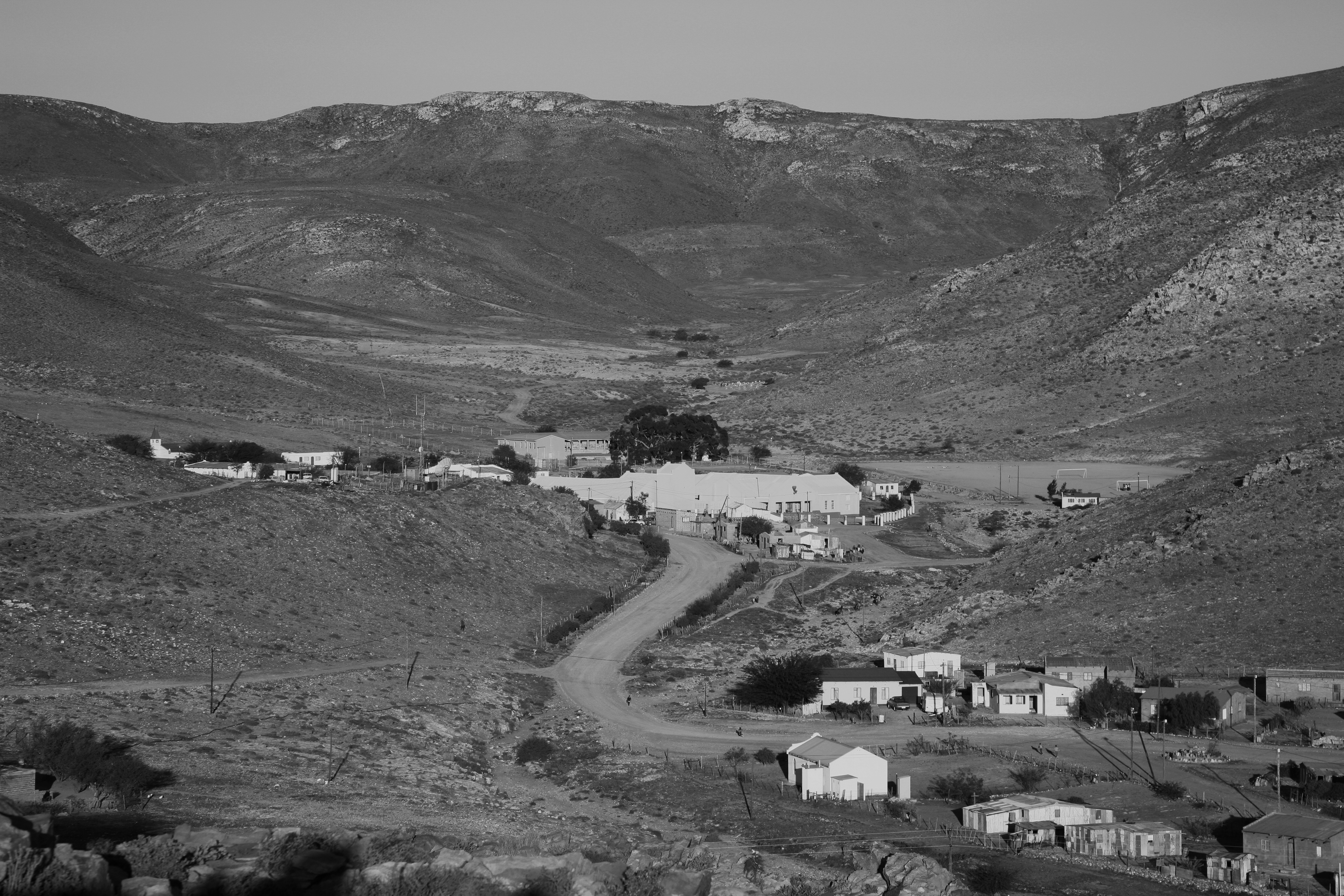
Lekkersing village in its desolate Richtersveld setting. Image: Chris Marais
Stoffel saves the day
Initial impressions of Lekkersing village are not promising. We’ve booked a room in a community-run guesthouse at the municipal offices, and are hoping to meet the local tourism person and engage the services of a guide.
The room isn’t ready, the tourism officer is on holiday and the regular guide has disappeared. Not to worry, says the municipality’s Marie Sampson. The room will be cleaned in a jiffy and perhaps she can track down Koos Stoffel for us.
“Who is Koos Stoffel?”
“He’s not an official guide, but you’ll like him, I promise,” says Marie. OK, we’re on, I say.
And what a delight. A middle-aged man with friendly eyes and a fetching felt hat arrives within the half-hour and wants to know how he can help us. After being treated to a few minutes of our lovely, mauled-up mix of English and Afrikaans (called Graaffrikaans here in the Karoo), he offers an opinion.
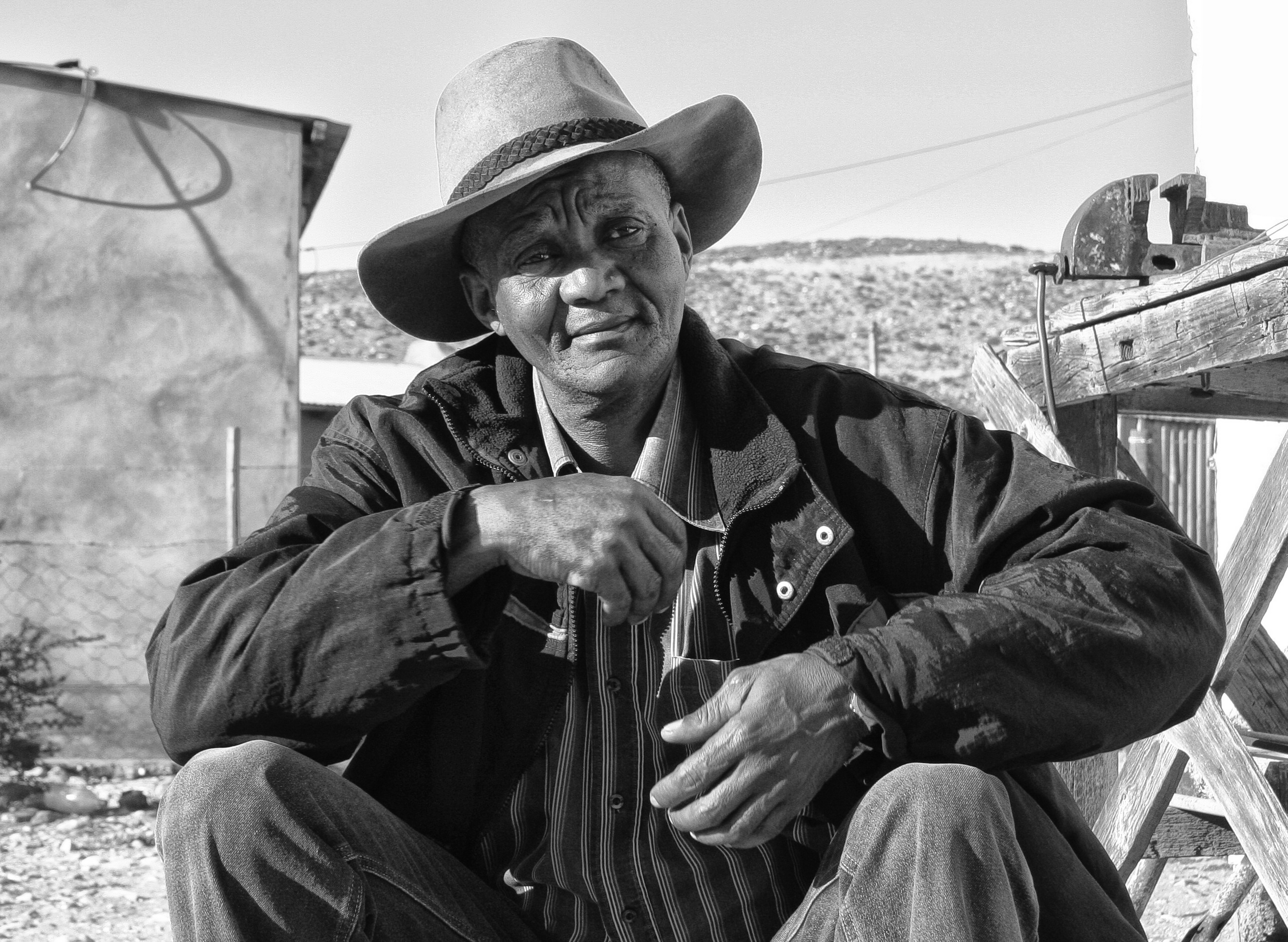
Koos Stoffel, the unofficial five-star Lekkersing guide. Image: Chris Marais
“I’m not sure whether you need a guide – or a translator.” There’s a smile on his face and a twinkle in his eye. We soon come to learn that gentle joshing is the Lekkersing way of things.
Stoffel (no one appears to bother with the Koos part of his name) says Lekkersing is Lekkersing because of a merry little spring that once flowed through here. “Another reason for the name is we all love to sing, especially when someone plays the concertina.”
As if to illustrate his point, Stoffel starts to sing a hymn that is filled with the plaintive chords and soft raindrop clicks of the Nama tongue. Now we know this is going to be one helluva cultural visit. But first we have to unpack the dusty bakkie.
“No need to unpack,” says Stoffel. “We have to, otherwise there’s no place for you in the bakkie.” The man is astounded by all the luggage. “Are you moving to Lekkersing?” he wants to know.
All Stoffel’s friends
Stoffel, who is on early medical retirement after injuring himself while working at Beauvallon Farm on the Orange River, has attained the status of Grootmens (elder) in his community. “And you don’t have to be that old to be called a Grootmens,” says he with an air of mystery. “You just have to know.”
We drive around the hardscrabble settlement and he points out the locations of the church, the school and the borehole that keeps everyone watered. Then he takes us on a slow ramble to meet, greet and chat with his circle of friends.
Oom Andries Isak, a Bo-Sluis Baster, is draped on his front steps in full sunshine, just drinking in the day with a wide smile on his thin face. He says he’s very proud to be a living part of a World Heritage Site.
Up the road, Tannie Magrieta Cloete dons a traditional bonnet and gladdens our hearts. We chat about veld food (baroe, veldduimpies) and traditional food like melkkluitjies (dumplings cooked in goat’s milk) and I begin to salivate. I also know that if all of that overcomes the liver, there’s always a dose of Jantjie Berend to be had. “I must tell you about the thing that happened to me two days ago,” she suddenly confides. “A group of 17 white people from Jo’burg came to visit me. I fed them roosterkoek and boerewors in my kitchen. “It turns out they were all Cloetes, either before or after marriage. They told me they were touring the Richtersveld, looking up all the other Cloetes they could find.”
Johanna Diergaardt, next door, sits for a portrait photograph which shows off her amazingly Cherokee-like features while her grandson Roman keeps trying to slide into frame. Tannie Johanna has never cut her hair. “God doesn’t want it.”
We go on to meet the bonneted Tannie Regina Fieland and her husband, Oom Joseph, who looks like the Hollywood actor-director John Huston. Oom Joseph is in the backyard of the family home, watching his son-in-law and a friend trying unsuccessfully to connect a length of plastic piping between the indoor toilet and a perilously small septic tank outside. From time to time, Oom Joseph calls out good-natured mocking advice to the younger men, who grin ruefully.
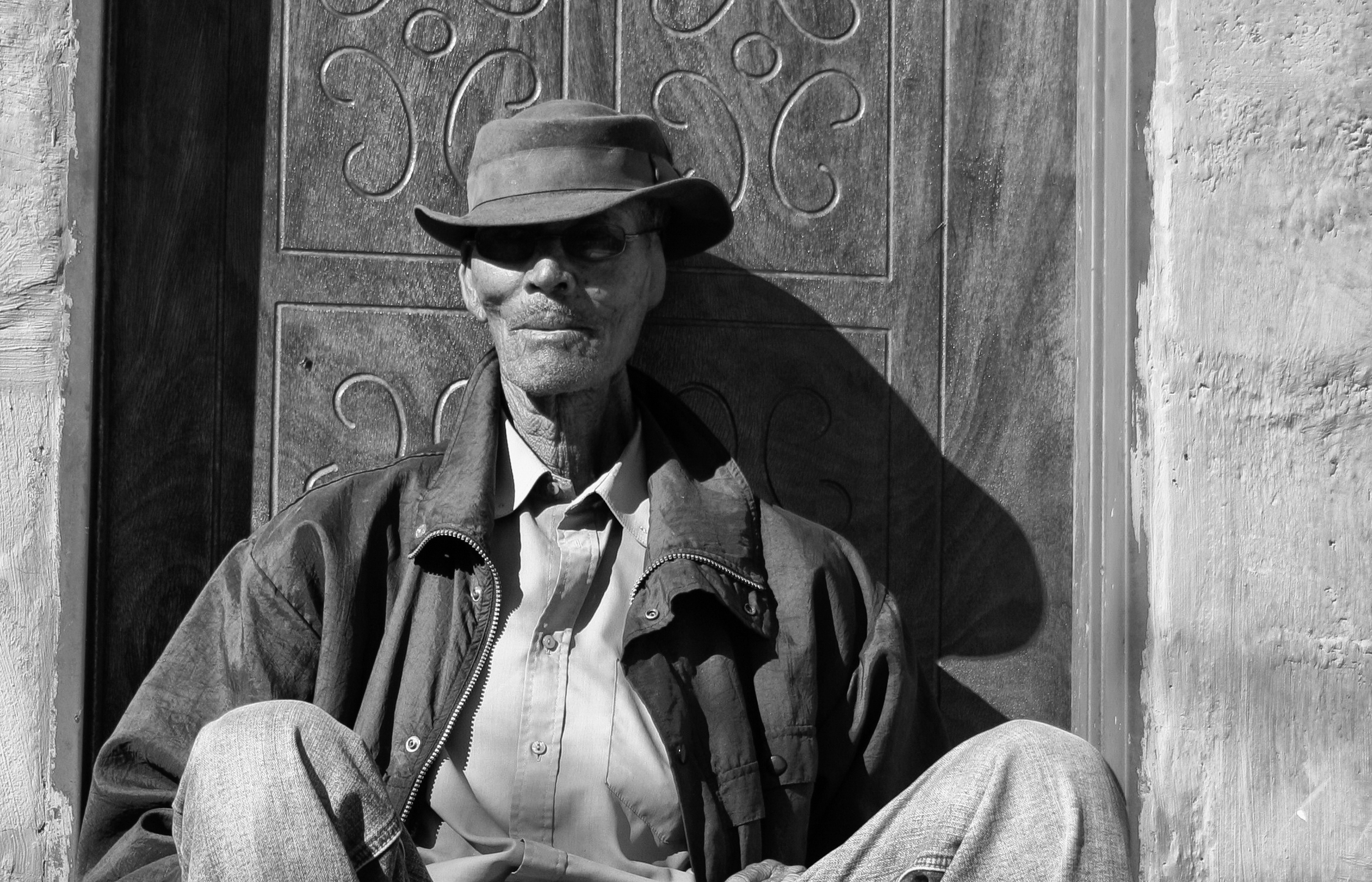
Oom Andries Isak loves being part of a World Heritage Site. Image: Chris Marais
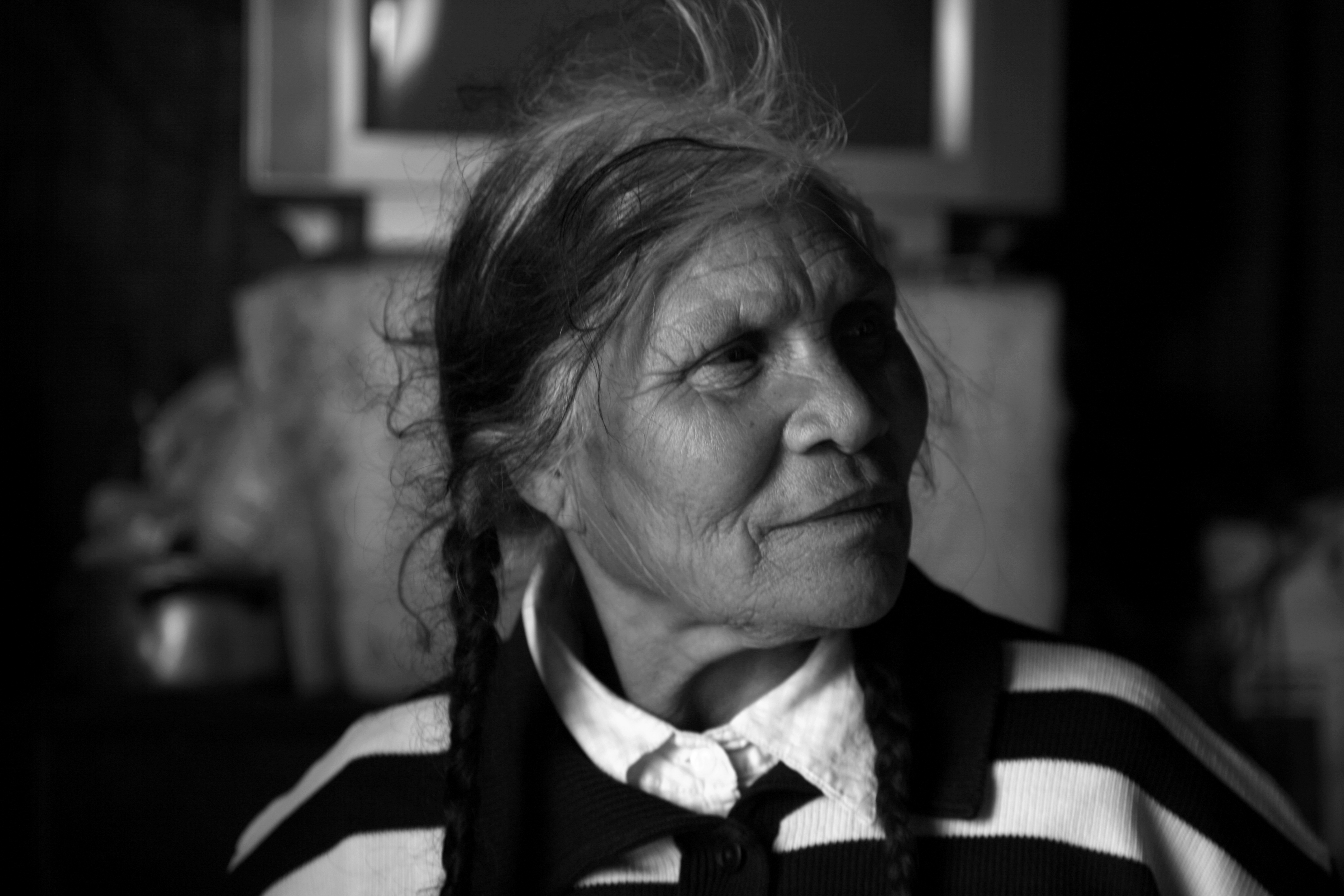
Tannie Johanna Diergaardt has never cut her hair. Image: Chris Marais
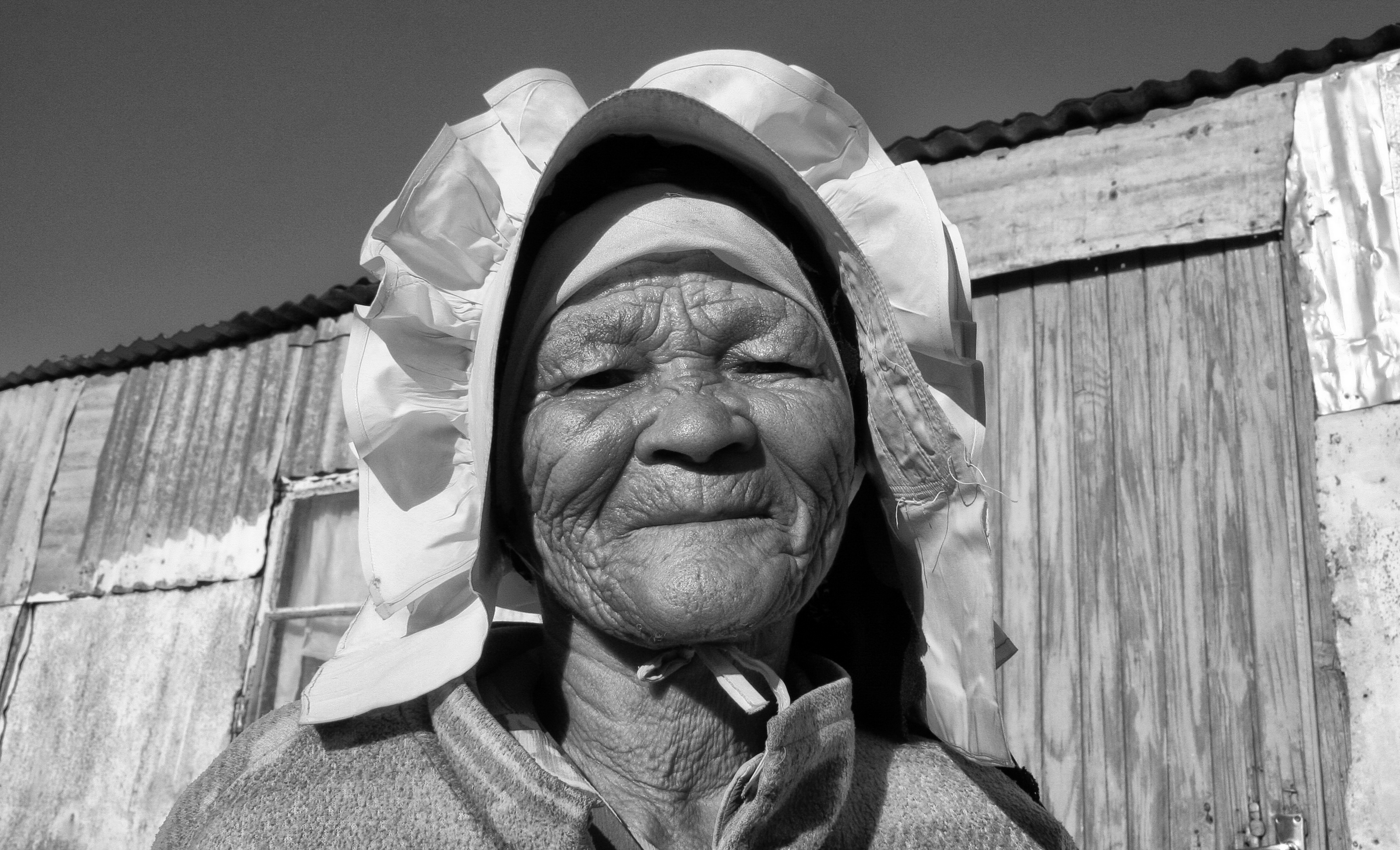
The bonneted Tannie Regina Fieland. Image: Chris Marais
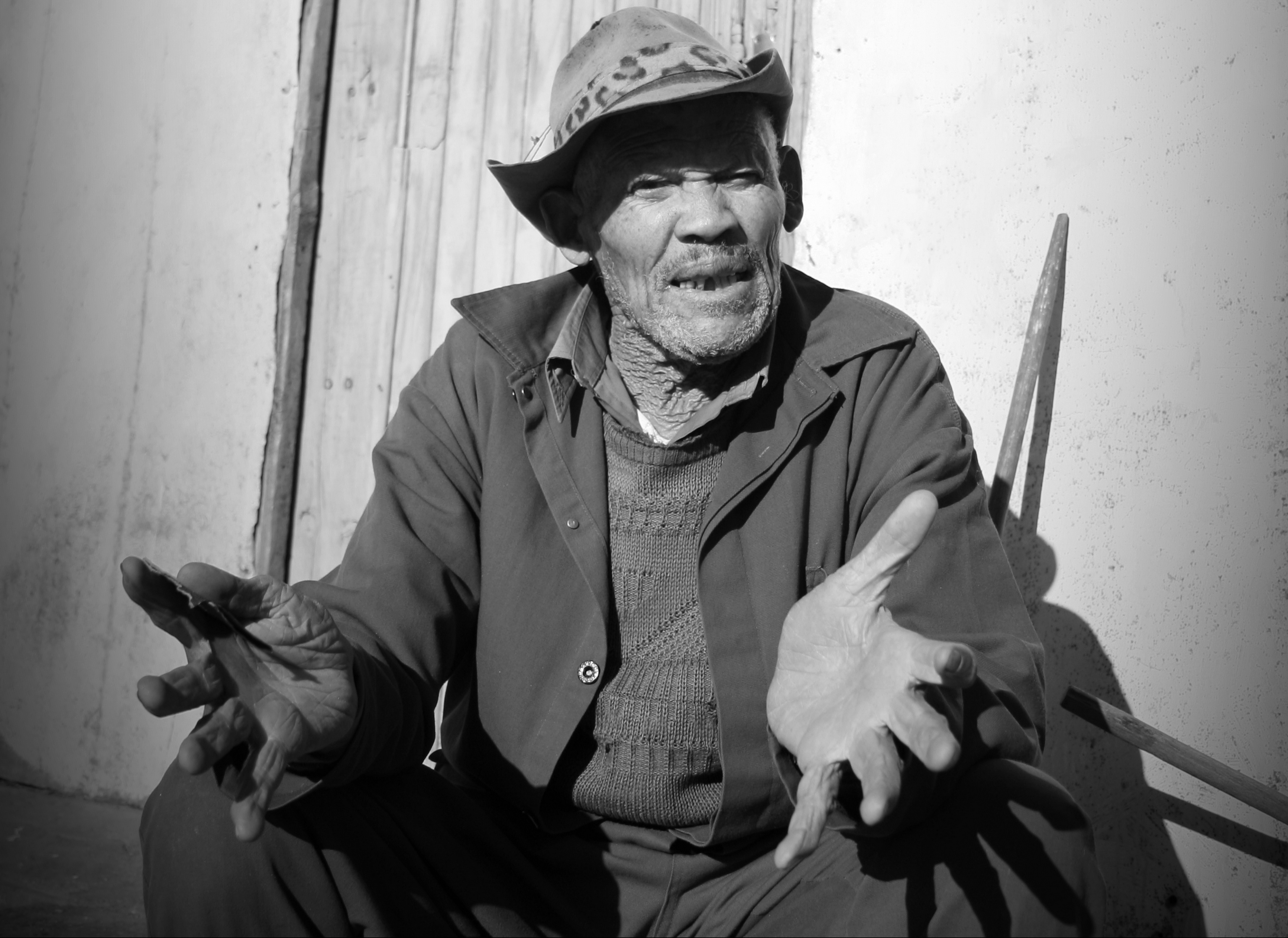
Oom Joseph Fieland, explaining the ways of the Richtersveld world. Image: Chris Marais
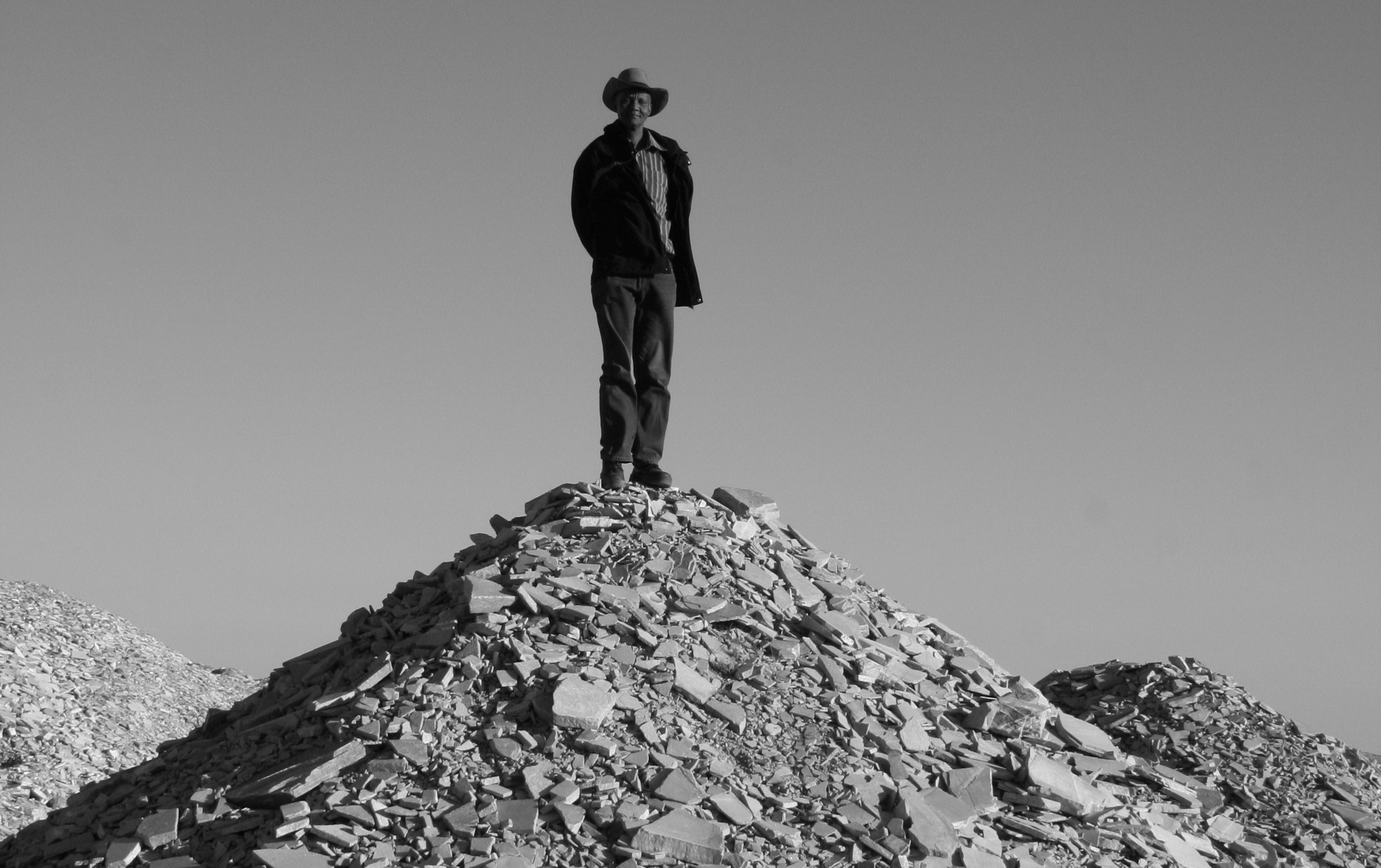
Koos Stoffel atop a quartzite hill. Image: Chris Marais
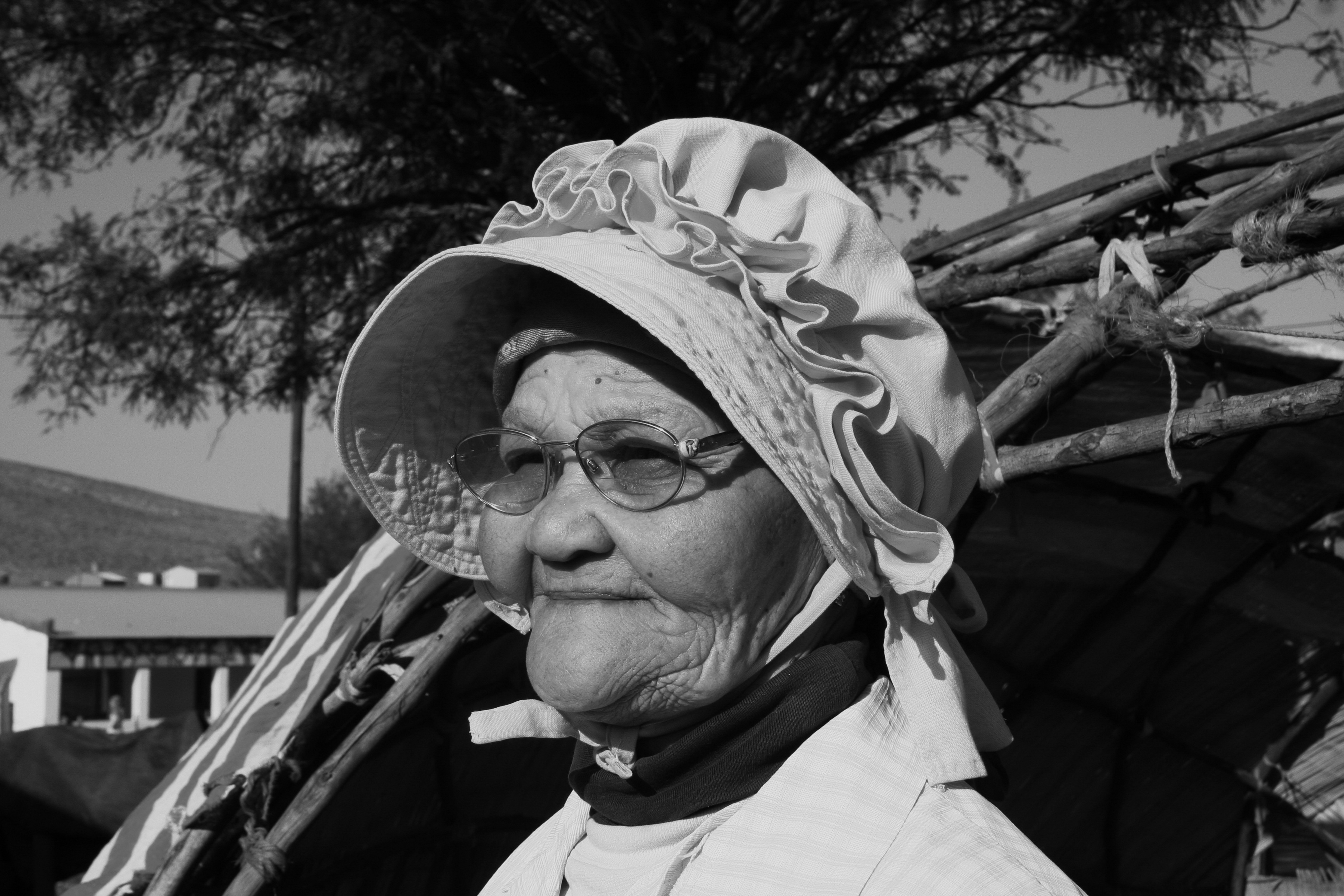
Lekkersing stalwart Ouma Lena Joseph. Image: Chris Marais
The Grootmense of Lekkersing like to sit around and talk to each other, editorialising on the world and its uncle. They have grown up without digital connections of any kind, and hanging out and chatting is their social media. Listening to their arcane, highly descriptive use of the Afrikaans language, we realise they are the Stoep-sitting Royalty of the Richtersveld.
Our day ends at sunset on a quartzite mine overlooking the town, with Koos Stoffel showing us the dendrite patterns in the stone. On the way back to our accommodation, we offer to drive Stoffel home. No, he says, just drop me off where you’re staying. “I need to go to the shop anyway, to buy some Coke and Boxer tobacco, after you’ve paid me.”
There is silence in the bakkie. We have forgotten to discuss the matter of money. “Um, you are paying me something, aren’t you?” comes a small voice from the back seat of the bakkie. “Of course!” we reply, and the cash we hand over seems to more than satisfy our most extraordinary guide of the day. DM/ML

‘Karoo Roads III’ book cover. Image: Supplied
This is an extract from Karoo Roads III – The Adventure Continues, by Chris Marais and Julienne du Toit. For author-signed, first-edition copies of Karoo Roads III or the complete collection of Karoo Roads books, email Julienne du Toit at [email protected]
Visit Daily Maverick’s home page for more news, analysis and investigations


















Positively poetic, redolent of a forgotten way of life and contentment with what one has. WHat can I say that is not platitudenous. Thank you.